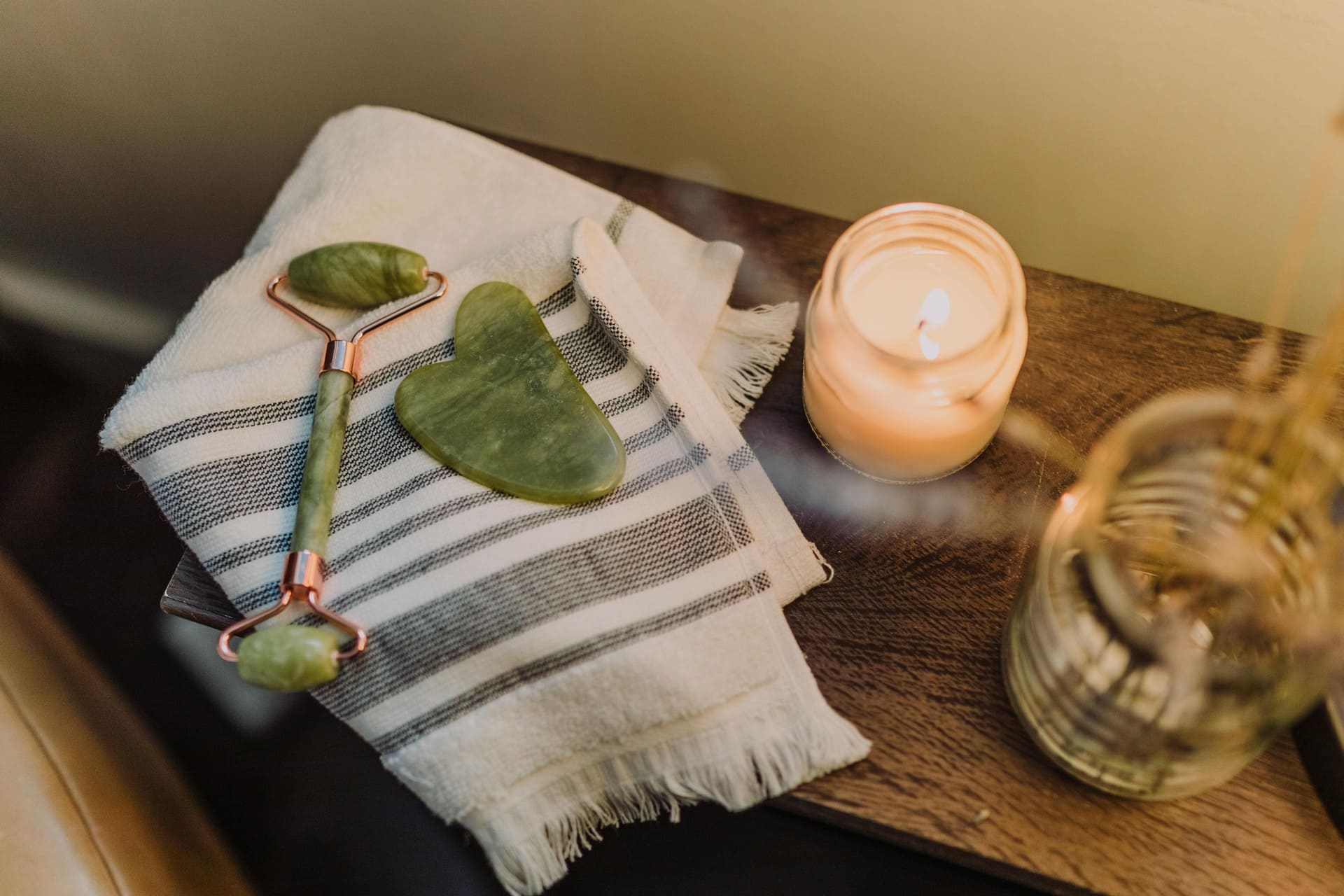Does Sunlight Help with Anxiety?

Sarah Johnson, MD

Why Do We Feel Worse in the Dark?
Long nights and dim light make the mind feel heavier. You might have noticed that worries seem louder when you're lying awake before dawn, or that a gray winter afternoon can turn small annoyances into huge annoyances. It's not just a thought; there is science behind it. Less light messes with our circadian rhythms, lowering serotonin (the "feel-good" chemical) and confusing melatonin (the "sleep" hormone), which makes us tired but restless. Less daylight also means fewer chances for the little things that usually keep us grounded, like sunlight on your face, a walk outside, or seeing that the world is still moving forward. When dim light makes your worries feel heavier, a Mental Health AI can offer personalized strategies to help realign your mood and energy.
- Sunlight and Mood: The Science Behind the Warmth
- Real-Life Signs You Might Need More Light
- Does Sunlight Help Depression and Anxiety? Research Says Yes
- Simple Ways to Get More Healing Light (Even Indoors)
- Not Just Light — But Permission to Pause
- Light is a Need, Not a Luxury
- FAQ: Sunlight and Anxiety
For a lot of us, the dark makes things worse. A fleeting thought turns into a loop, and a little bit of stress feels like it will never go away. I've noticed that when I'm stuck inside for too long, my patience wears thin, and a sunset at 4 p.m. in December can make my chest feel tight for no reason. The darkness seems to take away some of the invisible barrier between me and my feelings. But knowing this pattern gives us a quiet sense of comfort because it means we don't have to carry the whole weight. Some of it is just the dark, the time of year, and how our bodies react to being alone. And like any other night, it will change.

Sunlight and Mood:
The Science Behind the Warmth
How Sunlight Changes Your Brain. Sunlight is more than just good for your mood; it's good for your health. When light hits your retina, it makes serotonin, which makes you feel better and helps you focus while keeping stress hormones in check. It also controls melatonin, which helps you sleep soundly at night and wake up feeling refreshed. These systems stutter when there isn't enough light. Serotonin levels drop, melatonin leaks into the day, and circadian rhythms get out of sync, making you tired, confused, and emotionally worn out.
What Makes Darkness Feel Heavy. Some people don't just feel sad when the sky is gray; they get Seasonal Affective Disorder (SAD), a type of depression that happens when you don't get enough light. Shorter days mess up the pathways for dopamine and serotonin, which makes anxiety worse and takes away motivation. Researchers have found that even people who don't have SAD have 20–30% more negative thoughts in the winter. Why? Low light puts the brain in "threat mode," which means it sees dimness as uncertainty. This is a remnant of our ancient survival instincts that linked darkness with danger. Combining time outdoors with movement, like a walk in the park, offers powerful outdoor exercise benefits that can directly combat the effects of low light on your mood.
Experts from Harvard Health Publishing note that regular sunlight exposure supports both mood and focus by stimulating serotonin production and improving circadian rhythm balance — two essential mechanisms for lowering anxiety and stabilizing mood through the winter months.
Real-Life Signs You Might Need More Light
Feeling Sluggish or Low for "No Reason"
Even though you get enough sleep, you still wake up feeling like you're walking through thick fog. Things that are usually easy to do suddenly seem impossible. It's not laziness; it's your brain not getting enough serotonin, which is a neurotransmitter that sunlight helps make.
Increased Worry, Irritability, or Poor Sleep
Your body has a hard time telling the difference between day and night when there isn't much light. That 3 a.m. anxiety and irritability isn't just stress—it's often a sign of light affecting sleep-anxiety and a disrupted circadian rhythm.
Craving Carbs or Comfort Food
It's not just a lack of willpower that makes you want pasta, bread, or chocolate all of a sudden. Low light means low serotonin, and your brain wants quick mood boosts from carbs. It's a biological trick that gives you short-term relief but then makes you feel worse.
Avoiding Social Contact More Than Usual
Do you ever cancel plans, ignore texts, or feel "peopled out" after only a little interaction? Darkness is a great place for isolation to grow. The brain starts to see neutral social cues as threats or burdens when there isn't enough light.
Does Sunlight Help Depression and Anxiety? Research Says Yes
What Science Tells Us. Several studies, including those from the Mayo Clinic and mental health platforms such as Calm, validate the essential role of sunlight in emotional well-being. Serotonin, a neurotransmitter that helps control mood, focus, and emotional stability, is made more when you are in natural light. On the other hand, not getting enough sunlight is linked to higher rates of anxiety and depression, especially in the winter or in places with little sunlight.
Recent studies confirm that sunlight exposure can significantly improve anxiety and depression symptoms by regulating serotonin and melatonin levels. A 2023 study from the National Library of Medicine found that consistent morning light exposure reduces stress and improves emotional resilience in adults.
Vitamin D and Mental Health. When sunlight hits your skin, it makes vitamin D, which affects how serotonin works. Low levels of vitamin D are strongly linked to more depressive symptoms and more anxiety. Taking supplements can help, but getting natural sunlight is still the best way to keep your levels up. Just 10 to 30 minutes of sun at noon (depending on your skin tone) can make a big difference. Getting natural sunlight is one of the most effective forms of natural mood enhancement, directly boosting your vitamin D and serotonin levels.
Light’s Impact on Stress Hormones. Exposure to bright light, especially in the morning, lowers cortisol, which is the body's main stress hormone. Research shows that people who get a lot of natural light have less anxiety, sleep better, and are more emotionally strong. It has been shown that even artificial bright light therapy, which is used to treat Seasonal Affective Disorder, can help with symptoms of non-seasonal depression.
Simple Ways to Get More Healing Light
(Even Indoors)
1. Morning Sunlight Exposure (10-15 Minutes Daily)
Early daylight has the biggest effect on your circadian rhythm. Get outside within an hour of waking up without sunglasses on to tell your brain that it's daytime. There is enough light intensity on even cloudy days to control serotonin and melatonin.
2. Walking Breaks or Balcony Time
Short bursts of activity outside add up. Walking for five minutes every two to three hours gets you more light than sitting by a window all day. If you can't go outside, work or talk on the phone in front of a window.
3. Light Therapy Lamps (Used Correctly)
When the winters are dark or the sun doesn't shine much:
- Pick a lamp with 10,000 lux
- Place it 16 to 24 inches away at eye level
- Use it for 20 to 30 minutes while you read or eat breakfast
4. Indoor Light Optimization
Put mirrors across from windows to reflect light deeper into rooms. In workspaces, replace warm bulbs with daylight-spectrum LEDs (5000K+). During the day, open curtains all the way.
Not Just Light —
But Permission to Pause
Sunlight not only makes you feel better, it also tells you to slow down. In a world that values constant productivity, just stepping into the light can be a quiet act of rebellion: a chance to breathe, stretch, or just be without having to do anything. You could sit on your front step with a cup of tea in the morning or stop by a window that gets a lot of sun to feel the warmth on your skin. When the light hits your face, notice how your shoulders drop, or how your thoughts become less sharp when you match your pace to the sun's slow rhythm.
These short breaks aren't for fun; they're for resetting your body. Just a few mindful minutes in the sun can serve as powerful light therapy for anxiety, helping to calm your nervous system and reduce stress. The light isn't just making you better at what you do; it's also making you a better person in all the small, unmeasurable ways that matter.
Light is a Need, Not a Luxury
Sunlight is not just a nice-to-have; it is just as important for your mental health as water is for your body. Wanting brightness isn't a luxury; it's your nervous system asking for something basic. It's not laziness if you feel slow in the winter or heavy on gray days; it's biology. Your body and brain evolved in the sun, and they don't work as well when they don't get enough of it.
You don't need to be dramatic about needing light. You are acting like a person. That desire to go to the windows or the longing for summer isn't just a whim; it's a physiological request for regulation, just like hunger signals a need for food. And even though sunlight can't fix everything, it can help you feel more grounded in yourself, improve your mood, and sharpen your focus—one ray at a time.
FAQ: Sunlight and Anxiety
How does sunlight help with anxiety?
Sunlight exposure triggers serotonin and vitamin D production, two key factors for emotional stability. Regular daylight helps regulate cortisol levels and balance your circadian rhythm, which naturally calms the nervous system and reduces anxiety.
Does sunlight help depression and anxiety at the same time?
Yes. Studies show that consistent exposure to natural light improves both anxiety and depressive symptoms by increasing serotonin activity and promoting better sleep. Morning sunlight is especially effective for reducing stress and mood swings.
How much sunlight do I need for mental health?
About 10–30 minutes of sunlight a day is enough for most people. Early-morning or midday exposure supports healthy sleep-wake cycles and prevents the “winter dip” often linked to low light and anxiety.
What if I can’t get enough natural sunlight?
You can still benefit from light therapy lamps that mimic natural daylight. Choose one with at least 10,000 lux and use it for 20 minutes each morning. It helps regulate your internal clock and manage symptoms of sunlight and anxiety more effectively.
Can vitamin D supplements replace sunlight?
Vitamin D supplements support mood balance, but they don’t fully replace sunlight’s impact on serotonin and circadian regulation. Combining moderate supplementation with safe daylight exposure gives the best results for both anxiety and overall emotional well-being.














